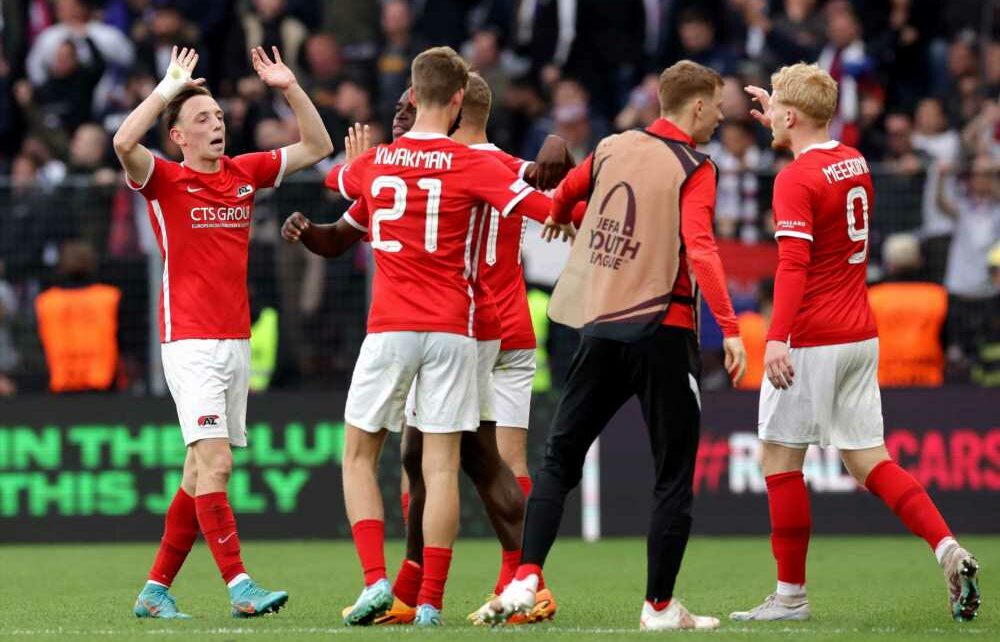BRAIN studies have helped AZ Alkmaar to identify young talent and lift the Uefa Youth League title.
The Dutch side clinched the Champions League's junior competition for the first time in their history last month with a 5-0 victory over Hajduk Split.

And one way they are gaining an advantage over other clubs is through talent identification.
Alkmaar have employed Brain First to study the minds of players as young as 12 in order to further understand an individual's potential in the game.
Speaking to Sky Sports, Brain First founder Eric Castien said: "AZ look for players who are not only outliers physically, mentally, tactically and technically but also cognitively.
"If you are at the elite level at 16, maybe even with the national team, but score poorly repeatedly on our tests, then AZ would most likely not hire you.
READ MORE IN FOOTBALL

Carragher slams ‘CLOWN’ Rio and takes dig at Gerrard as he savages BT punditry

Football free bets: Get £40 bonus when you stake £10 with William Hill
"It is about identifying future potential not primarily current performance as almost all clubs still do."
Castien's background is in journalism rather than neuroscience, with the idea first coming to him after he wrote a book about talent ID at Real Madrid and Barcelona in 2011.
He said: "Everyone inside those academies knew all about talent and both clubs agreed that evaluating that talent came down to the four factors – physical, mental, tactical and technical.
"The problem was that there was a fifth element that they could not identify.
Most read in Football

Man Utd takeover moves closer with Glazers finally confirming preferred bidder

Abbey Clancy disgusted with X-rated text Peter Crouch sends her to 'get lucky'

Saliba installs home gym but Arsenal fans fuming at what's on his wall

Man Utd 'in advanced talks to sign Kim Min-jae' in £52m transfer
BETTING SPECIAL – BEST NO DEPOSIT CASINO OFFERS
"Some of the coaches there called it magic. Others called it the black box. You either have it or you do not have it, but nobody knew what it was. Was it a third knee or an eleventh tooth?
"No, it was up here, inside the brain. That was the black box for them.
"They were not stupid. Intuitively, they understood that there was something decisive that they could not grab. They were aware of it, but could not decode it and transform it into tangible, actionable data.
"That is what we have done with clubs like AZ Alkmaar."
Castien met with two neuroscientists at the University of Amsterdam and brought the cognitive approach to football.
It took four years to prove they could identify brain functions in a player, and then a further six years to show they could predict future performance.
But now they are doing so at Alkmaar and have seen tangible results in the Uefa Youth League triumph.
Meanwhile, the Eredivisie side's senior team are into the Europa Conference League semi-finals where they will take on West Ham.
Source: Read Full Article


